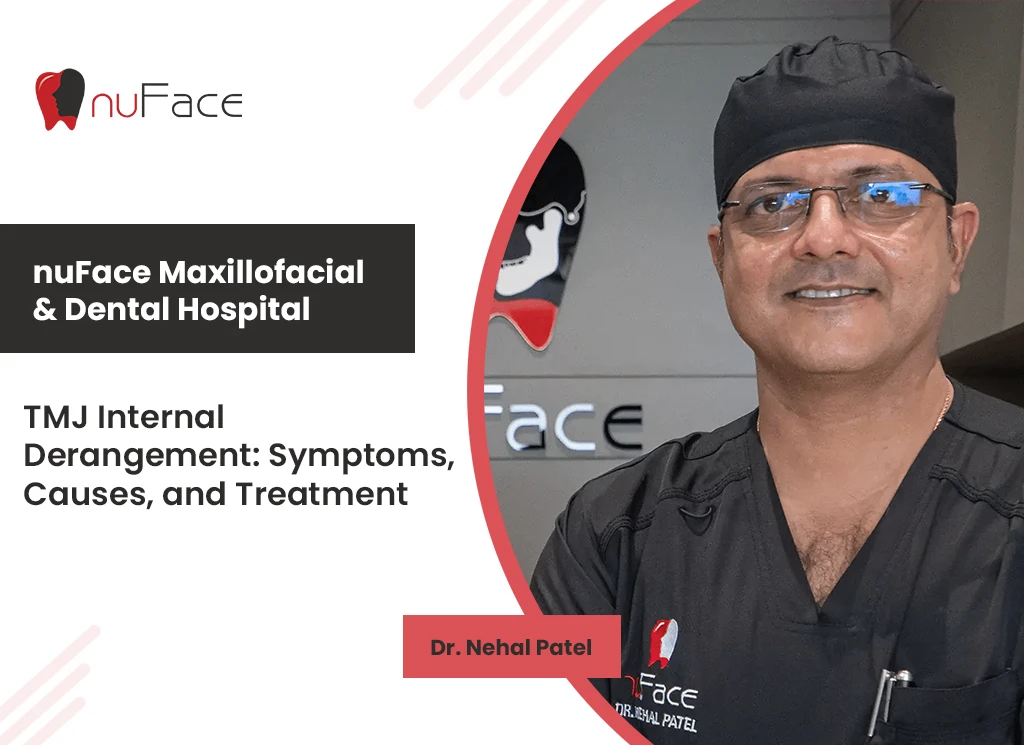What is TMJ Internal Derangement
Temporomandibular Joint (TMJ) Internal Derangement is a condition that affects the small, hinge-like joint connecting your lower jaw to your skull. This joint, located in front of the ears on each side of your head, is crucial for various jaw movements, including speaking, chewing, and yawning. Internal derangement occurs when the disc is displaced or misaligned within the TMJ, leading to pain and dysfunction.
Symptoms of TMJ Internal Derangement
The symptoms of TMJ Internal Derangement can vary in severity and presentation. Common symptoms include:
- Jaw Pain: Persistent pain around the jaw joint or muscles is one of the primary symptoms. This pain can radiate to the neck, shoulders, and even the ears.
- Clicking or Popping Sounds: Many patients report hearing clicking or popping noises when opening or closing their mouths. These sounds are usually caused by the disc moving out of its normal position.
- Limited Jaw Movement: Difficulty in fully opening or closing the mouth is a frequent complaint. In severe cases, the jaw may become locked in an open or closed position, a condition known as lockjaw.
- Headaches: Frequent headaches or migraines may be associated with TMJ issues, particularly if the jaw joint is causing muscle tension and strain.
- Ear Pain: Since the TMJ is close to the ear canal, discomfort or pain can sometimes be felt in the ear, leading to confusion with other ear-related issues.
Causes of TMJ Internal Derangement
Several factors can contribute to TMJ Internal Derangement:
- Trauma: Injury to the jaw or TMJ, such as from a car accident or sports-related incidents, can lead to internal derangement. This Facial trauma can displace the disc or damage the joint structures.
- Arthritis: Conditions like osteoarthritis or rheumatoid arthritis can affect the TMJ, leading to inflammation and degeneration of the joint structures. This can cause the disc to become displaced or misaligned.
- Structural Abnormalities: Misalignment of the teeth or jaw can place extra stress on the TMJ, leading to internal derangement. Issues such as malocclusion (improper bite) can contribute to this problem.
- Bruxism: Chronic teeth grinding or jaw clenching, often caused by stress or anxiety, can put excessive pressure on the TMJ. Over time, this pressure can cause the disc to shift out of place.
- Connective Tissue Disorders: Conditions that affect connective tissues, such as Ehlers-Danlos Syndrome, can also impact the TMJ. These disorders can lead to laxity or instability of the joint structures.
Diagnosis of TMJ Internal Derangement
To accurately diagnose TMJ Internal Derangement, a comprehensive evaluation is necessary. This typically includes:
- Medical History: Your dentist or oral surgeon will review your symptoms, medical history, and any previous injuries or conditions affecting your jaw.
- Physical Examination: A thorough examination of the jaw, including palpation of the TMJ and assessment of jaw movement, is conducted to identify signs of derangement.
- Imaging Studies: X-rays, MRI (Magnetic Resonance Imaging), or CT (Computed Tomography) scans may be used to visualize the joint structures and determine the extent of the displacement or damage. MRI is particularly useful for assessing soft tissue structures like the disc.
Treatment Options for TMJ Internal Derangement
Treatment for TMJ Internal Derangement depends on the severity of the condition and the specific symptoms experienced. Options include:
Non-Surgical Treatments
- Medication: Over-the-counter pain relievers such as ibuprofen or acetaminophen can help manage pain and reduce inflammation. In some cases, prescription medications or muscle relaxants may be necessary.
- Physical Therapy: Exercises and techniques aimed at strengthening the jaw muscles and improving joint function can provide relief. Physical therapy may also include modalities like heat or cold therapy to reduce inflammation and pain.
- Dental Splints or Night Guards: Custom-made oral appliances can help alleviate pressure on the TMJ by preventing teeth grinding and jaw clenching. These splints can also aid in proper jaw alignment.
- Lifestyle Modifications: Managing stress, avoiding hard or chewy foods, and practicing relaxation techniques can help reduce symptoms. Ensuring good posture and avoiding excessive jaw movements are also beneficial.
Surgical Interventions
For cases where conservative treatments are ineffective, surgical options may be considered:
- TMJ Arthroscopy: This minimally invasive procedure involves inserting a small camera and instruments into the TMJ through tiny incisions. It allows the surgeon to visualize and address issues within the joint, such as repositioning the disc or removing damaged tissue.
- Open TMJ Surgery: In more severe cases, open surgery may be required to access the TMJ directly. This procedure can address significant disc displacement, repair damaged tissues, or reconstruct the joint if necessary.
- Orthognathic(Jaw) Surgery: Corrective jaw surgery may be recommended if structural abnormalities contributing to TMJ Internal Derangement are present. This surgery can realign the jaw and improve overall function.
- Temporomandibular Joint Replacement: In cases where the TMJ is severely damaged or degenerated, replacement with an artificial joint may be considered. This option is typically reserved for advanced cases where other treatments have failed.
Conclusion
TMJ Internal Derangement is a challenging condition that can significantly impact your quality of life. Understanding the symptoms, causes, and available treatments can help you seek appropriate care and manage the condition effectively. For specialized care, Dr. Nehal Patel at nuFace Maxillofacial & Dental Hospital offers advanced diagnostic and treatment options for TMJ disorders. As one of India’s leading experts in TMJ Arthroscopy and Orthognathic Surgery, Dr. Nehal Patel provides personalized care to address complex TMJ issues and restore optimal jaw function.






